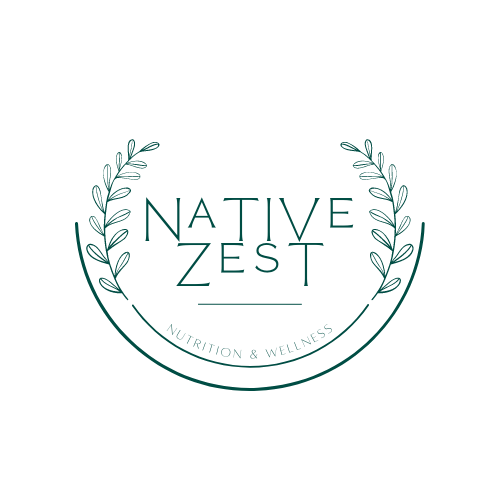
Glutathione: ‘Queen of the antioxidants’
Glutathione (a non-essential amino acid) is not found in food, our bodies synthesize it, but you can still boost your glutathione levels through your diet.
Consuming sulfur-rich foods such as arugula, cruciferous vegetables and garlic, and sources of cysteine such as whey proteins, promote glutathione synthesis. 1
Metabolic Function
Glutathione is known as the ‘queen of the antioxidants’; it is beneficial for the body’s natural defense system in fighting free radicals and is a protectant for the skin, lens, cornea, and retina. It’s main function is to reduce or relieve oxidative stress but it alsoplays an important role in signaling and transcription processes.2,3
Glutathione is composed of three amino acids; cysteine, glycine and glutamate. It’s concentrated in our lungs and our liver; thus, it is critical for detoxification in the body.
The parenchymal cells of the liver synthesize GSH (reduced glutathione) for P450 conjugation and many other metabolic needs. P450 enzymes metabolize substances that are consumed externally, such as medications and toxins that are formed internally, within cells. Inside the cell, GSH helps re-reduce oxidized forms of other antioxidants. GSH availability down-regulates the pro-inflammatory potential of leukotrienes and other eicosanoids.3,4
Potential benefits
It is believed that taking glutathione may increase athletic performance.2 Glutathione may significantly reduce neurotoxicity.5
Low glutathione levels have been correlated with an increased susceptibility to liver toxicity, a reduction in immune function and increased vulnerability to infection. Generally speaking, glutathione it thought to help prevent aging, cancer, heart disease, dementia and may be used to treat everything from autism to Alzheimer’s disease.1
Considerations
Evidence that supplementation improves athletic performance is very limited.2
Glutathione is not recommended as a neuroprotectant because of the limited number of individuals who participated the trial and the small number of neurotoxic events within that group.5
Factors from toxins in the diet to the surrounding environment including pollution, medications, stress, trauma and radiation, all can contribute to lowering glutathione levels.1
It is also important to note that we don’t absorb glutathione very well.3
Carnosine
Synthesis of carnosine is limited by the availability of beta-alanine which can be increased by eating meat. Grass-fed, pasture-raised meat is a great source of carnosine; 7 ounces may have about 250mg of carnosine.6
Metabolic function
Carnosine is a dipeptide consisting of beta-alanine and histidine. It’s found only in animal tissue, specifically in excitable tissue such as muscle and neural tissue. Carnosine is important in acid- base regulation in skeletal muscle and may protect against oxidative damage.
Carnosine is found in type II muscle and is thought to increase the efficiency of excitation-contraction coupling during muscle contraction. In addition, it may help in muscle recovery following a high-intensity workout.2
It is hypothesized that carnosine assists in controlling brain activity; individuals with down syndrome or who experience seizures were found to have lower levels of carnosine.7
Carnosine is believed to have the following properties: it’s an antioxidant, antiglycating, chelating agent (removes harmful, heavy metals), and pH buffering.8
Potential benefits
Could be beneficial for autistic individuals. Carnosine is thought to build up in an area of the brain that has been linked with expression and behavior, that is usually impaired in individuals with autism. It’s possible that carnosine helps protect or activate this portion of the brain and may improve speech, social activity and behavior.
Eyedrops containing carnosine may help treat cataracts found in older people.
Diabetic individuals – carnosine has been used to prevent or treat diabetes-related complications including nerve disorders, cataracts and kidney dysfunction.7
Considerations
Again, further research is needed to determine benefits of carnosine. Evidence for benefits of carnosine in individuals with autism is unclear. It is not suggested for pregnant or breastfeeding women as there is not adequate evidence as to whether or not it may cause harm.
It’s important to keep in mind that carnosine may lower blood pressure, therefore, supplementation is not recommended for people on medication to lower their blood pressure.
As carnosine is found only in animal tissue, people on a vegetarian or vegan diet likely aren’t getting it through the diet; studies have found vegetarians have less carnosine in their muscles compared to meat eaters. However, since it is non-essential and can be formed in the body, it isn’t of huge concern; not to mention there are vegan friendly supplements available, it is just something to consider. 7,9
- What is Glutathione and How Do I Get More of It? Dr Mark Hyman. May 2010. https://drhyman.com/blog/2010/05/12/what-is-glutathione-and-how-do-i-get-more-of-it/. Accessed October 29, 2018.
- Permitted non-hormonal performance-enhancing substances – UpToDate. https://www-uptodate-com.nunm.idm.oclc.org/contents/permitted-non-hormonal-performance-enhancing-substances?search=glutathione&source=search_result&selectedTitle=2~150&usage_type=default&display_rank=2. Accessed October 29, 2018.
- Glutathione Information: What is GSH, Biochemistry, Metabolism, and Mechanism of Action. https://www.essentialgsh.com/glutathione.html. Accessed October 29, 2018.
- Reference GH. Cytochrome p450. Genetics Home Reference. https://ghr.nlm.nih.gov/primer/genefamily/cytochromep450. Accessed October 31, 2018.
- Prevention and treatment of chemotherapy-induced peripheral neuropathy – UpToDate. https://www-uptodate-com.nunm.idm.oclc.org/contents/prevention-and-treatment-of-chemotherapy-induced-peripheral-neuropathy?search=glutathione&source=search_result&selectedTitle=4~150&usage_type=default&display_rank=4. Accessed October 29, 2018.
- 26 Proven Benefits of Carnosine + Side Effects, Food Sources. Selfhacked. June 2016. https://www.selfhacked.com/blog/carnosine/. Accessed October 30, 2018.
- Carnosine – The Source Natural Foods. http://www.thesourcenatural.com/ns/DisplayMonograph.asp?StoreID=dhap6v4fb7sr2nm700akhlbd3cmfbxmd&DocID=bottomline-carnosine. Accessed October 29, 2018.
- Berezhnoy DS, Stvolinsky SL, Lopachev AV, et al. Carnosine as an effective neuroprotector in brain pathology and potential neuromodulator in normal conditions. Amino Acids. October 2018. doi:10.1007/s00726-018-2667-7
- 7 Nutrients You Can’t Get From Plant-Based Foods. EcoWatch. https://www.ecowatch.com/7-nutrients-you-cant-get-from-plant-based-foods-1882074083.html. Published July 22, 2015. Accessed October 30, 2018.





